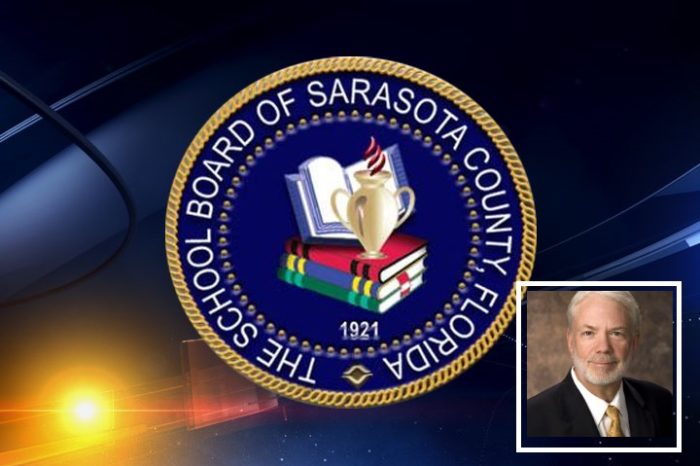What Should Libertarians Think about the Civil War? by Phillip Magness
The current national debate over the display and meaning of the Confederate battle flag has reopened a number of longstanding arguments about the meaning of the American Civil War, including within libertarian and classical liberal circles.
Because of its emotional subject matter, lasting political legacies of race and slavery, transformative effects upon American constitutionalism, and sheer magnitude as the most destructive military episode ever to occur on American soil, the Civil War exhibits strong tendencies toward politicization in the modern era.
Unfortunately, bad history often accompanies this politicization, and libertarians are by no means immune from this tendency.
Two common interpretations of the Civil War stand out as particularly problematic:
- libertarian support for the Confederacy; and
- libertarian support for the Union.
The Problem with Pro-Confederate Libertarianism
The first and perhaps best known “libertarian” approach to the Civil War attempts to find sympathy with the defeated Confederacy because of its resistance to the federal government and northern military authority or its professed cause of free trade and political self-determination.
Some aspects of this position have intuitive appeal that produces sympathy for the Confederate cause: it professes outrage against a Union that is said to have conquered by force, trampled on the rights of states and individuals, unleashed a military invasion, suspended civil liberties, denied government by consent, elevated Lincoln to a “dictator,” and effected a lasting centralization of federal power. In this view, the Union cause and victory is the foundational work for the modern state and all that is anathema to political libertarianism.
This interpretation falters in what it neglects: slavery.
This is no small irony, either, as the anti-slavery cause was arguably the preeminent political occupation of libertarianism’s classical liberal antecedents. A continuum of classical liberal thinkers from Adam Smith to John Stuart Mill and J.E. Cairnes forged the main intellectual case against the slave system.
Abolitionism was also always a preeminent political cause of liberalism, extending from 18th-century statesman Charles James Fox to the 19th century’s Richard Cobden in Great Britain and strongly influencing such figures as William Lloyd Garrison, Lysander Spooner, and Frederick Douglass in the United States.
This is no small matter for the libertarian intellectual tradition either, for in sidestepping the slave question’s intimate connection to the Confederacy, pro-Confederate libertarians also inadvertently abandon what is perhaps the single most important and beneficial contribution that classical liberalism has made to the human condition: the abolition of slavery.
This is not to suggest that libertarian defenders of the Confederacy share its historical affinity for chattel slavery or the plantation system. Rather, they are guilty of turning a tin ear to the one unequivocally beneficial outcome of the war in the permanent destruction of American slavery.
The Problem with Libertarian Unionism
A smaller set of libertarians gravitate to a second common interpretation of the Civil War, defined primarily by its consequential outcome.
Unlike the pro-Confederate position, these libertarian defenders of the North are keenly aware of both the centrality of slavery to the conflict as well as the importance of the abolitionist cause to the liberal intellectual tradition. Standing as a direct antithesis to the pro-Confederate arguments, these faute de mieux Unionists recognize the inherent and fundamental contradiction between slavery and human liberty.
Their position embraces the Union victory on a consequentialist acceptance of the resulting emancipation of the slaves, and disavows any conceivable association between libertarian thought and a brutish Southern slavocracy, born of no other motive or purpose but to entrench and expand that pernicious institution — and deserving of nothing short of a violent and warring elimination by any means or justification.
The argument is both morally appealing and marked by its clarity, but it also suffers from its Manichean simplicity and a tendency to read an inevitable “irrepressible conflict” into the hindsight of the Civil War’s destruction.
This view recognizes slavery and celebrates its abolition, but it tends to neglect or even rationalize the war’s uglier features and consequences: a dramatic weakening of the constitutional federalism laid out in 1787, a rapid acceleration of the scope and power of the federal government, a precedent-setting assault on habeas corpus and expansion of presidential war powers that persists to the present day — and the horrendous destruction itself.
Measured by deaths alone, current estimates place the war’s military toll at 750,000 soldiers. Civilian deaths are more difficult to estimate, though the most common number given is 50,000. And perhaps most telling of all, between 60,000 and 200,000 slaves likely perished as a result of disease and displacement caused by the war.
Why a New Interpretation Is Necessary
Where then does this leave the conscientious libertarian in assessing the Civil War’s legacy?
To address the faults of both the pro-Confederate and pro-Union positions, I’ll offer two propositions for libertarians to consider:
- One needn’t be for the Union to be against slavery.
- One needn’t be for the Confederacy to object to the North’s prosecution of the war.
Stated differently, a morally consistent libertarian view of the war should strive to dissociate itself from the political actors that waged it, while also seeking to recognize its consequences, both positive and negative.
This much may be seen in the faults of the two views described above. Libertarians who embrace the Confederacy are more often than not reasonably aware of both the evils of slavery and the distinction between the abolitionist cause and the Union.
But they neglect the second rule; because of their distaste for the Union’s wartime policies, they stake their claim to a Confederate cause that, whether they admit it or not, thoroughly attached itself to the moral abomination of slavery.
And libertarians who embrace the Union are also usually aware of the objections one might lodge against its indulgences in unrestricted warfare, suspension of civil liberties, centralization of power, or any of the other charges often made against the Union’s wartime cause or its outcome.
But they thoroughly subordinate these objections to the greater moral purpose of emancipation — a focus that obscures all but the most simplistic reading of the war’s other political and constitutional consequences.
In each argument, the problem is not its primary emphasis, but the complexities it obscures or leaves out.
In place of both views, and in recognition of their deficiencies, libertarians might develop a better appreciation for the Civil War’s complexity by turning their analysis to the nature of the ruinous agency of the conflict itself.
War, whether waged to hold human beings in bondage or subjugate a political rebellion, is a consciously coercive action of the political state in its most expansive and direct form. And armed warfare, as both the Union and Confederacy came to discover across four destructive years, is horrifically messy, unpredictable, and destructive of human life and human liberty.
Military goals and political motives also matter, as they define the objectives of the armies and prioritize their execution. Thus, a military maneuver to capture an opposing political capital will take a very different form from one that eschews political objectives and seeks to maximize the liberation of slaves or the protection of civilians.
There may also be small glimpses of just action amongst individual participants in a far more ambiguous conflict. When the abolitionist Thomas Wentworth Higginson raised the 1st South Carolina Volunteers, an all-black unit composed of escaped slaves, there is little doubt that they were fighting for emancipation, even as larger Union war goals moved far more slowly on this objective.
There is similarly little doubt about the motive of some Southerners who fought for their homes and families as hostile armies marched through their states; even a handful of Confederates — Patrick Cleburne, Duncan Kenner — pressed their government (in vain) to consider emancipation as a means of securing independence.
These graces on the periphery tell us more about the conflict’s moral complexity than anything that may be found in its political objectives. History is not a Manichean struggle between pure good and evil; we are not served by filtering its conflicts through a dualistic moral lens.
Instead of looking for a “side” to champion, we are better served by recognizing that even amid the unbridled horrors of slavery and the devastation of war, there may still be a few who are fighting for something better than their country’s cause.
Phil Magness is a policy historian and academic program director at the Institute for Humane Studies.







